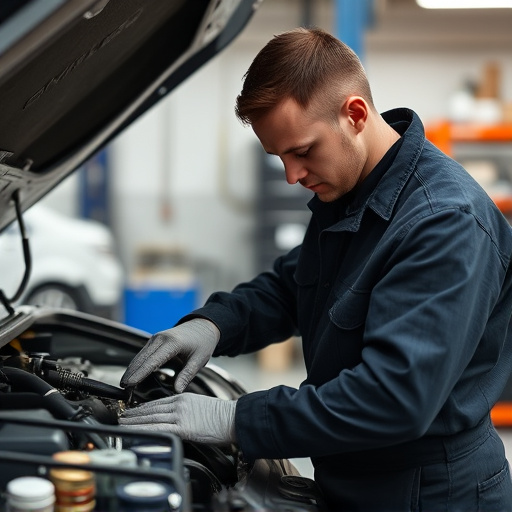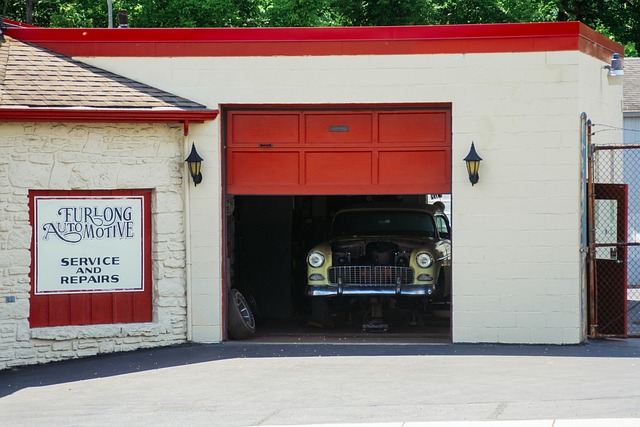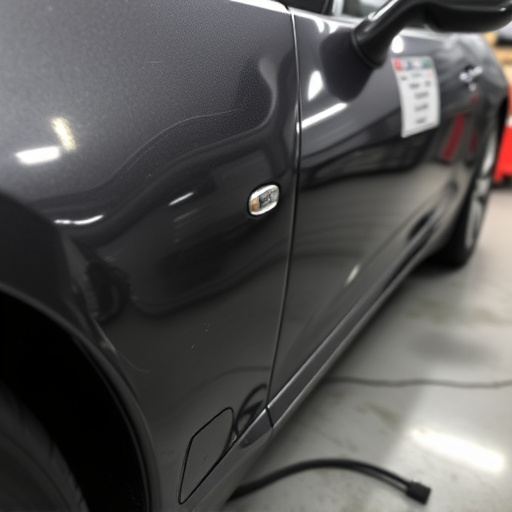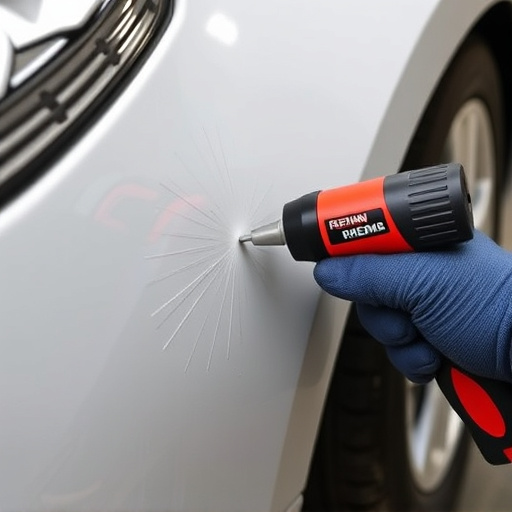The automotive industry is experiencing a significant shift towards eco-friendly practices, particularly in major dent repair services. Traditional methods associated with high environmental costs are being replaced by greener alternatives, such as biodegradable products, energy-efficient equipment, and advanced digital technologies like 3D scanning and CAD software. These innovations reduce waste, preserve vehicle surfaces, and minimize air, water, and carbon pollution. The growing demand for sustainable solutions from both consumers and the industry itself is driving this transition, with a focus on reducing ecological impact, enhancing indoor air quality, and fostering a circular economy through collaborative efforts between auto repair services and environmental organizations.
In today’s eco-conscious world, even seemingly minor issues like dents in vehicles are being viewed through a sustainability lens. Major dent repair services are no longer just about aesthetics; they’re undergoing a green revolution. This article explores the environmental impact of dent repairs, highlights innovative eco-friendly technologies transforming the industry, and delves into the benefits and future prospects of adopting sustainable practices in major dent repair services.
- Understanding the Impact of Dent Repairs on the Environment
- Innovative Eco-Friendly Technologies in Dent Repair Services
- Benefits and Future Prospects of Sustainable Dent Repair Practices
Understanding the Impact of Dent Repairs on the Environment
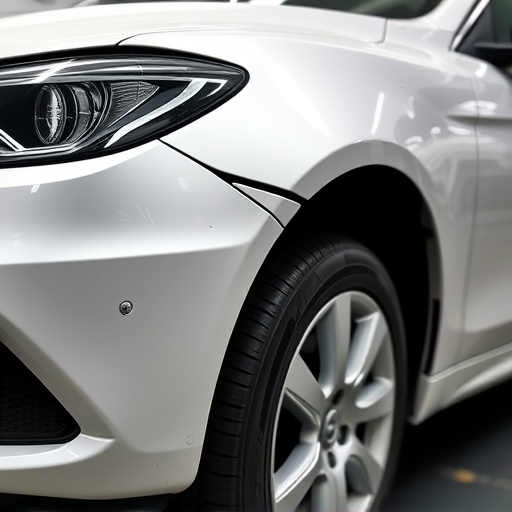
The process of major dent repair, while often necessary for restoring vehicles to their pre-damaged condition, has historically carried a significant environmental cost. Traditional methods typically involve intensive use of chemicals and energy-intensive machinery, contributing to air and water pollution, as well as substantial carbon emissions. The impact extends beyond the immediate vicinity of the repair shop; these pollutants can have far-reaching effects on local ecosystems and global climate patterns.
As awareness of environmental sustainability grows, so does the demand for eco-friendly approaches in vehicle body repair, car dent removal, and automotive restoration. By adopting greener methods, major dent repair services can play a crucial role in minimizing their ecological footprint. This shift involves exploring alternatives to conventional materials and practices, such as utilizing biodegradable products, implementing energy-efficient equipment, and promoting recycling and waste reduction strategies within their operations.
Innovative Eco-Friendly Technologies in Dent Repair Services
The automotive industry is embracing eco-friendly technologies, and major dent repair services are no exception. Innovative tools and techniques are being developed to reduce the environmental impact of car body shop operations. For instance, some advanced dent repair systems utilize ultrasonic waves and heat instead of harsh chemicals or traditional hammering methods. These non-invasive approaches not only minimize damage to the vehicle’s surface but also cut down on waste generation.
Moreover, many modern automotive repair centers are adopting digital technology for precise measuring and mapping of dents, enabling efficient and accurate repairs. The use of 3D scanning and computer-aided design (CAD) software allows for customized restoration plans, reducing the need for excessive material replacement. As a result, these eco-friendly practices in major dent repair not only preserve resources but also contribute to a more sustainable automotive industry, ensuring that car body shops can offer top-quality services while maintaining their commitment to environmental stewardship.
Benefits and Future Prospects of Sustainable Dent Repair Practices
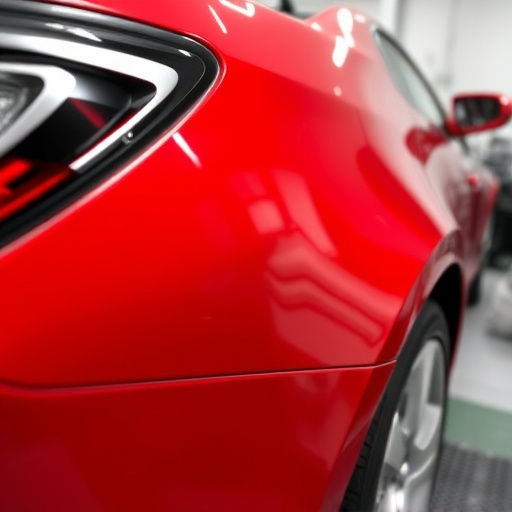
The shift towards eco-friendly practices in major dent repair is not just a trend but a necessary evolution, driven by growing environmental consciousness and consumer demand for sustainable solutions. By adopting sustainable methods, car repair services and collision repair centers can significantly reduce their ecological footprint. This involves using environmentally friendly materials, minimizing waste through innovative techniques, and opting for low-VOC (volatile organic compound) paints and adhesives that are less harmful to the atmosphere. The benefits extend beyond environmental preservation; these practices also contribute to improved indoor air quality in repair shops, enhancing the safety and well-being of workers.
Looking ahead, the future of dent repair seems poised for further integration of sustainable practices. As technology advances, we can expect to see more efficient, eco-conscious tools and equipment designed specifically for minor and major dent repair. Furthermore, increased collaboration between auto repair services and environmental organizations will drive research into innovative recycling methods for car parts, encouraging a circular economy model. This holistic approach promises not only to preserve our planet but also to shape the industry’s reputation as a leader in sustainable practices, setting new standards for auto repair services worldwide.
In conclusion, embracing eco-friendly approaches in major dent repair services is not just a trend but a necessary step towards a greener future. By understanding the environmental impact of traditional dent repair methods and leveraging innovative technologies, we can significantly reduce our carbon footprint. The benefits of sustainable dent repair practices are multifaceted, ranging from cost savings and extended vehicle life to contributing to a healthier planet. As we look ahead, the future of major dent repair lies in continued technological advancements and widespread adoption of eco-conscious practices, ensuring a harmonious balance between automotive care and environmental preservation.
